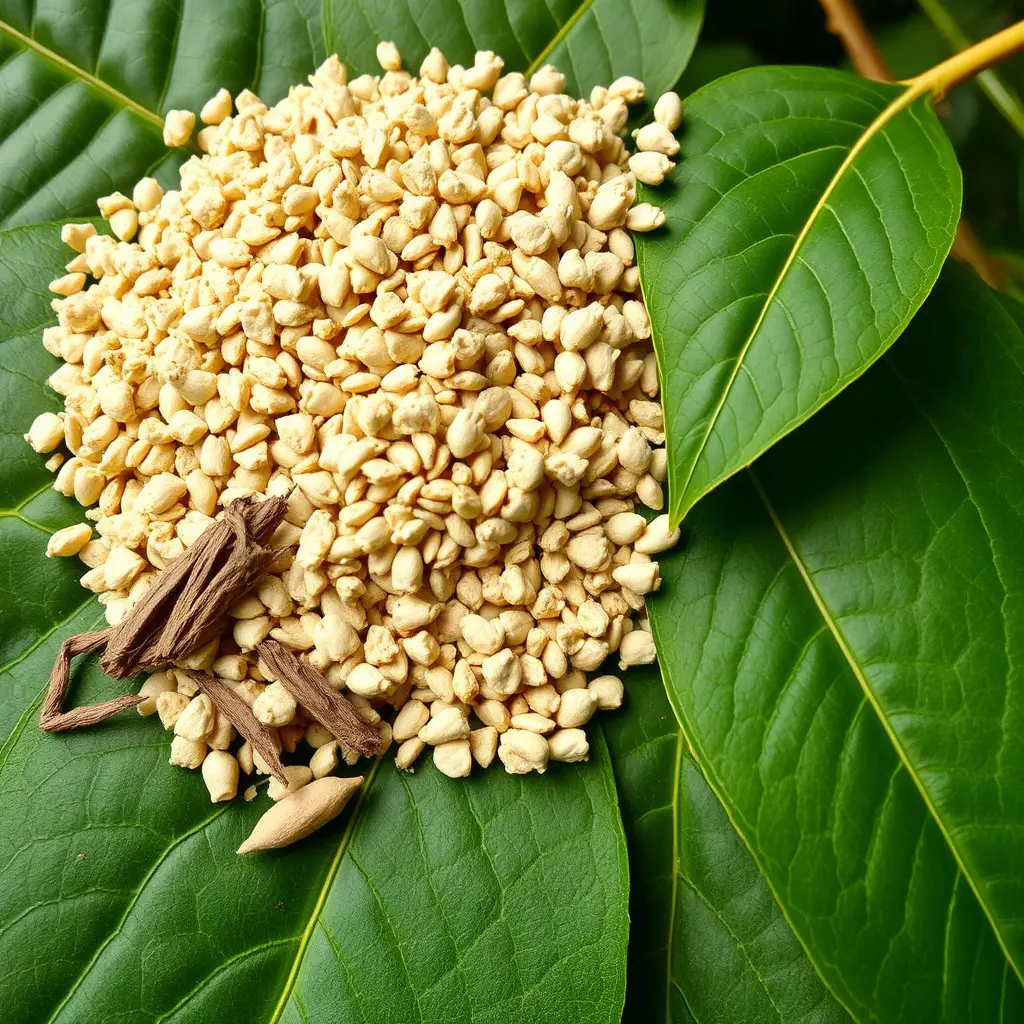Muscle soreness, particularly delayed onset muscle soreness (DOMS), results from micro-tears in muscle fibers after intense exercise. Kratom, a natural compound derived from Mitragyna speciosa, offers analgesic effects for muscle pain without prescription opioid risks. While studies are ongoing, kratom's potential to reduce pain and inflammation is promising. Blue Lotus Smoke kratom strain, popular for its soothing properties, can positively indicate on drug tests, posing risks for athletes or individuals subject to regular screenings. Responsible usage and understanding these risks are crucial before incorporating it into muscle soreness relief routines.
Muscle soreness, that lingering ache after intense exercise or physical strain, can impact your daily life. This article explores effective strategies for relief, with a focus on kratom supplements as a natural alternative. We delve into the science behind muscle soreness and its causes, uncovering potential benefits of kratom. Additionally, we discuss the Blue Lotus Smoke drug test—a crucial consideration before supplementing—ensuring informed decisions for those seeking natural pain management.
- Understanding Muscle Soreness and Its Causes
- Exploring Kratom as a Potential Relief Agent
- Blue Lotus Smoke Drug Test: What You Need to Know Before Supplementing
Understanding Muscle Soreness and Its Causes
Muscle soreness, often described as delayed onset muscle soreness (DOMS), is a common condition that arises after intense physical activity or exercise. It’s characterized by painful and stiff muscles, typically peaking around 24-72 hours post-workout. Understanding the causes of this discomfort is essential in developing effective strategies for relief.
DOMS primarily results from micro-tears in muscle fibers during strenuous exercises. These tiny tears lead to inflammation and the release of metabolic waste products, triggering sensory nerve endings to send signals of pain to the brain. Factors like exercise intensity, duration, type of activity, and individual fitness levels influence the severity of muscle soreness. Interestingly, even something as seemingly benign as a blue lotus smoke drug test can inadvertently induce DOMS if not properly prepared for or performed on a regular basis.
Exploring Kratom as a Potential Relief Agent
Kratom, derived from the plant Mitragyna speciosa, has gained attention for its potential therapeutic benefits, including muscle soreness relief. Often used as a natural alternative to pain medications, kratom’s active compounds interact with opioid receptors in the brain and body, offering analgesic effects without the same level of addiction risk associated with prescription opioids. This makes it an intriguing option for those seeking non-pharmaceutical solutions for chronic or post-workout muscle aches.
Research into kratom’s efficacy for muscle soreness is still evolving, but preliminary studies suggest its effectiveness in reducing pain and inflammation. Unlike some over-the-counter remedies that mask symptoms, kratom appears to target the root causes of discomfort, providing a longer-lasting sense of relief. Moreover, its accessibility as a smokable or herbal extract makes it easily obtainable for those interested in exploring alternative treatments, even for purposes like passing a blue lotus smoke drug test. However, due to varying potencies and individual reactions, proper dosage and caution are essential when incorporating kratom into any wellness regimen.
Blue Lotus Smoke Drug Test: What You Need to Know Before Supplementing
Blue Lotus Smoke, often used as a kratom strain, has gained popularity for its potential therapeutic effects, including muscle soreness relief. However, it’s crucial to be aware of its implications on drug tests, especially the Blue Lotus Smoke drug test. This is particularly important if you’re an athlete or subject to regular drug screenings.
The Blue Lotus Smoke drug test specifically targets kratom and its active compounds, such as mitragynine. Since kratom use can lead to positive results in routine drug assessments, it’s essential to proceed with caution. Regular consumption of Blue Lotus Smoke supplements could potentially show up on these tests, impacting employment or athletic opportunities. Therefore, understanding the risks and using these supplements responsibly is vital before incorporating them into your muscle soreness relief regimen.
Kratom supplements have shown promise in alleviating muscle soreness, especially when combined with proper hydration and gentle exercise. However, it’s crucial to remember that individual results may vary, and consulting a healthcare professional before supplementing is essential. Additionally, those considering kratom should be aware of potential drug interactions, particularly with substances like the Blue Lotus Smoke drug test, which targets kratom metabolites. In summary, while kratom may offer relief, informed and responsible use is key to ensuring safety and efficacy.






